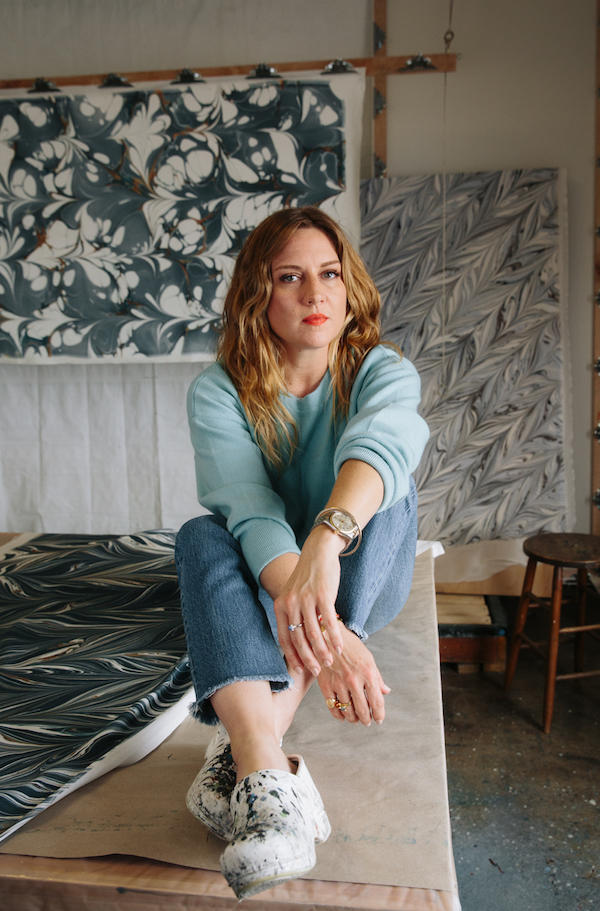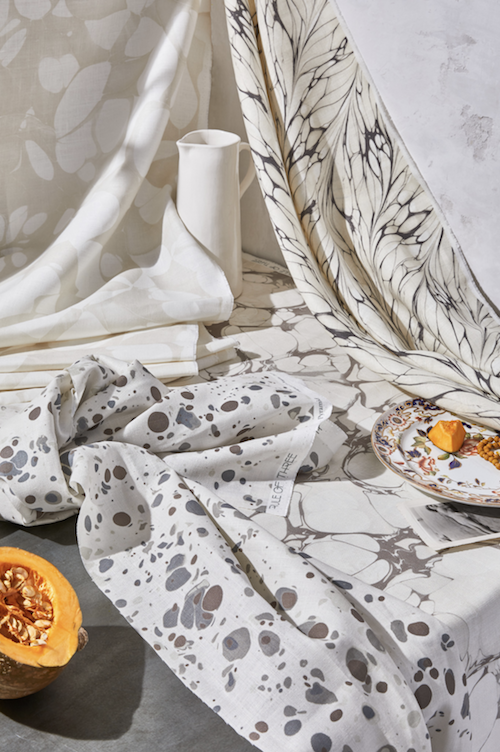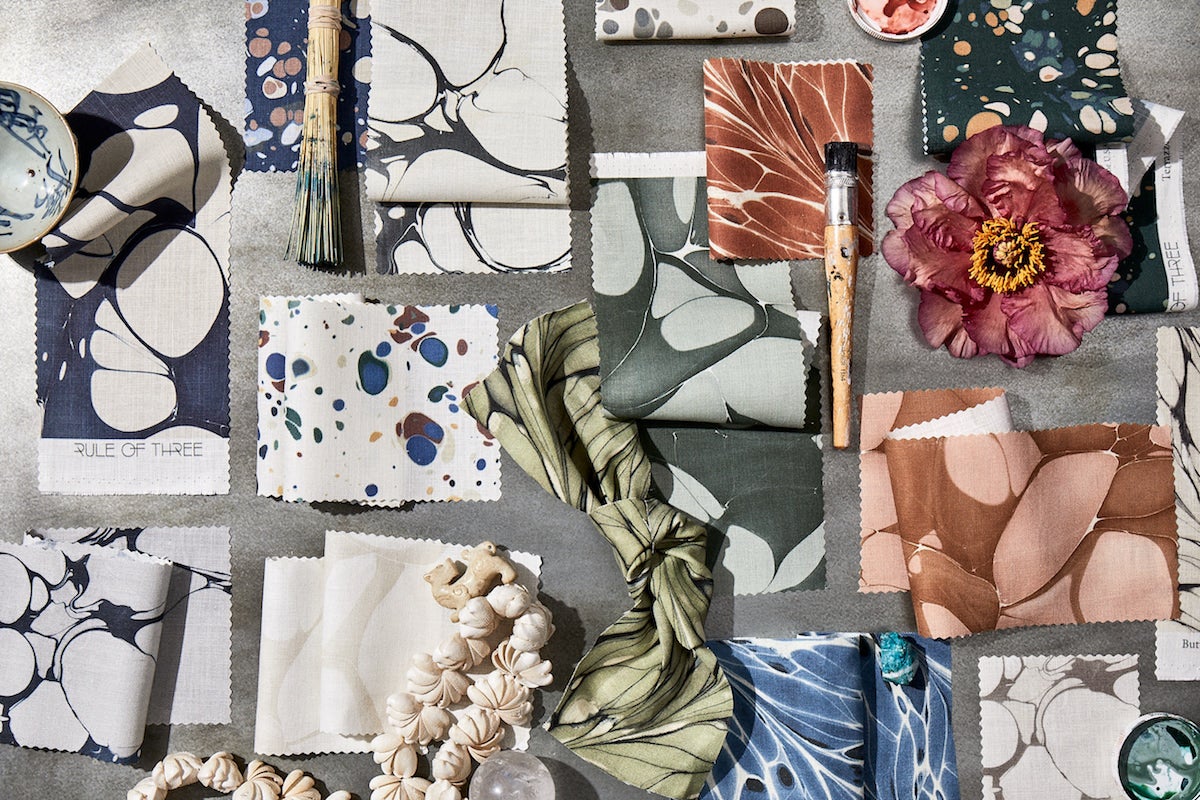Five years ago, Paige Cleveland, founder of Rule of Three (you know the brand for its exquisite marbled fabrics, wallpapers and leathers) would have scoffed at what she’s doing today. “I was the biggest hater,” she says with a laugh.
The move in question? Launching a line of digitally printed fabrics to complement her hand-dyed offerings. The collection, Maquette, comes in four patterns, with three to five colorways each. Like Rule of Three’s primary line, the look comes from traditional marbling techniques. Indeed, Cleveland creates the original artworks in her studio, which are then photographed and converted into digital files.

“Seven years ago, digital printing wasn’t as nice as it is now,” she says. “But the technology has come a long way—we can get the saturation of color and richness of pattern we’re looking for.”
For Cleveland, and for many boutique fabric makers, the choice to go digital involves a very particular set of opportunities and dilemmas. The ability to efficiently produce a more affordable product holds obvious draws, and as the technology has improved, much of the taboo around digitally printed fabrics has faded. However, there’s a faintly lingering stigma that keeps some textile makers away.
Then, of course, there’s the image of the artisan toiling away in a studio—an archetype Cleveland has very much embodied since founding the Los Angeles–based studio in 2013—that clashes with the seamless ease of digital production. We want our artists to suffer. It’s a notion she is acutely aware of.
“When I started this line, I was working on a very specific technique, and I really wanted to stay true to keeping it by hand and making sure it wasn’t a trend or something that could blow out quickly,” says Cleveland. However, the COVID-19 era is nothing if not a time to try new things (among other changes, she has recently pulled out of a few of her showrooms and is hiring outside sales reps). And maybe entrepreneurs are the new artisans anyhow.
It wasn’t a decision that came all at once, but through a series of experiments.

Cleveland first dipped her toes into digital printing via a commission from New York–based Gachot Studios to work on the Shinola Hotel in Detroit. The job called for a hefty wallpaper order, and hand-painting would have blown the budget to smithereens. So Cleveland began experimenting with digital and was shocked by how good the product turned out.
“It was a huge success—it was beautiful, I didn’t have one gripe about it, it was exactly how I wanted that product to be,” she says. “It gave me a lot of faith that we had the right tools to do this.” Another motivation? Being able to sell a product that didn’t require hours of arduous studio time. “I was like: This is it—we are going to be making money in our sleep,” says Cleveland, with a rueful laugh.
It didn’t happen, at least at first. But this spring, roughly a year after the collection launched, it started to pay out. The timing was fortuitous. “Honestly, through this whole pandemic and everybody working from home and not running production in our studio, [the wallpaper collection] kept us alive,” says Cleveland. “Our wallpaper sales are higher than they’ve ever been.”
The success of the collection sparked Cleveland to fast-track the same approach to fabric. There were a few ground rules. For one, though she considered screen printing (ostensibly a more “crafty” technique), it was impossible to reproduce the extremely saturated colors of marbling as a screen print. Digital was the only way to get the precise look down cold.

She also decided there would be no crossover between her hand-marbled line and the new digital patterns—a way to avoid cheapening a hard-earned brand. “How am I gonna explain to Peter Marino, ‘Hey, all that stuff you used from us is now just a digital product’? I could never do that,” says Cleveland.
Thankfully, Rule of Three had no shortage of options. The company had been working on a (since-shelved) collaboration with Helmut Lang that included developing patterns and techniques that were too strenuous to mass-reproduce for designers, but perfect for digital reproduction.
Cleveland hopes the new line, priced at roughly half the cost of hand-marbled fabric, will be a win for all involved. For designers, it’s a more affordable entry point to the brand (even Peter Marino’s clients have guest rooms). For Rule of Three, it’s a low-hassle stream of income. And if Cleveland’s hard-earned artisan reputation gets a little scuffed?
“[I wanted to] bring in a product that can support us, open us up to new designers, and free me up to do more custom work, which will feed our creativity,” she says. “I don’t want to not exist because I have this death grip on handmade goods.”
Homepage photo courtesy of Rule of Three





























